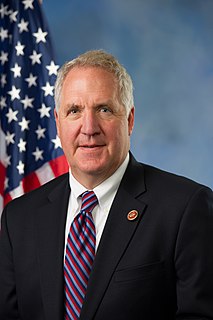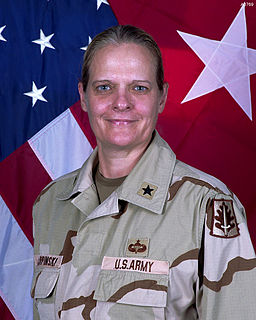A Quote by Vladimir Putin
It was at a certain stage (you might have forgotten, haven't you?) that the United States actively collaborated with Saddam when he was at war with Iran: weapons were supplied, diplomatic and political support was provided and so on. Then the US fell out with him for some reason and decided to do away with him.
Related Quotes
It was not the United States who invaded Kuwait; it was Iraq. It was not the United States that went to war with Iran; it was Iraq. It was not the United States that fired chemical weapons at Iran; it was Iraq. And it was not the United States that murdered innocent Iraqi citizens with chemical weapons; it was Iraq.
In the United States, Iran is nothing but a whipping-boy. Few Americans have any real use for Iran. Most of us, what we know and remember about Iran are things like the hostage crisis in 1980, or they think about the Iranian attacks in Lebanon, or on the Khobar Towers. So you don't get a whole lot of political mileage in the United States by going out and advocating better relations with the Iranians.
I'm not Joe Paterno. Somebody didn't come and tell me Bernie Fine did something and I'm hiding it. I know nothing. If I saw some reason not to support Bernie, I would not support him. If somebody showed me a reason, proved that reason, I would not support him. But until then, I'll support him until the day I die.
Iran has been calling for it for years, and the Arab countries support it. Everyone except the United States and Israel support it. The U.S. won't allow it because it means inspecting Israel's nuclear weapons. The U.S. has continued to block it, and in fact blocked it again just a couple of days ago; it just wasn't widely reported. Iran's nuclear program, as U.S. intelligence points out, is deterrent, and the bottom line is that the U.S. and Israel don't want Iran to have a deterrent.
There's no question that Saddam Hussein is a threat Yes, he has chemical and biological weapons. He's had those for a long time. But the United States right now is on a very much different defensive posture than we were before September 11th of 2001 He is, as far as we know, actively pursuing nuclear capabilities, though he doesn't have nuclear warheads yet. If he were to acquire nuclear weapons, I think our friends in the region would face greatly increased risks as would we.
In the Islamic world, the U.S. is seen in two quite different ways. One view recognizes what an extraordinary country the U.S. is.The other view is of the official United States, the United States of armies and interventions. The United States that in 1953 overthrew the nationalist government of Mossadegh in Iran and brought back the shah. The United States that has been involved first in the Gulf War and then in the tremendously damaging sanctions against Iraqi civilians. The United States that is the supporter of Israel against the Palestinians.
The Cold War philosophy of Mutual Assured Destruction (MAD), which prevented the former Soviet Union and the United States from using the nuclear weapons they had targeted at each other, would not apply to President Mahmoud Ahmadinejad's Iran. For him (Ahmadinejad), Mutual Assured Destruction is not a deterrent, it is an inducement.
I didn’t tell him. He found out. Basically, he caught me coming in after the last time you and I saw each other. But he won’t give us away, Lucas. He’s even willing to help us see each other, as long as we help him with Charity.” “What, like, a fund-raiser or something?” I’d forgotten he didn’t know her name. “The vampire girl in Amherst.” “Wait—Charity? That’s her name? You were able to figure out who she is.” He smiled so proudly that all the tension of the moment instantly melted. “I fell in love with a genius.
The threat of Saddam Hussein with weapons of mass destruction is real, but as I said, it is not new. It has been with us since the end of that war, and particularly in the last 4 years we know after Operation Desert Fox failed to force him to reaccept them, that he has continued to build those weapons. He has had a free hand for 4 years to reconstitute these weapons, allowing the world, during the interval, to lose the focus we had on weapons of mass destruction and the issue of proliferation.
Woodrow Wilson was the president of the United States in 1920, and he was made a fool of - his wife almost divorced him - because he wouldn't support women's suffrage. He was president during World War I, but I look back upon him as a coward. Because he knew the right thing to do - the right of women to vote was an idea whose time had come a long time before then, when a lot of women were put into prison or persecuted because they fought for it.

































